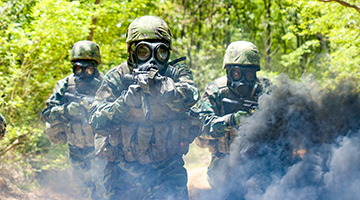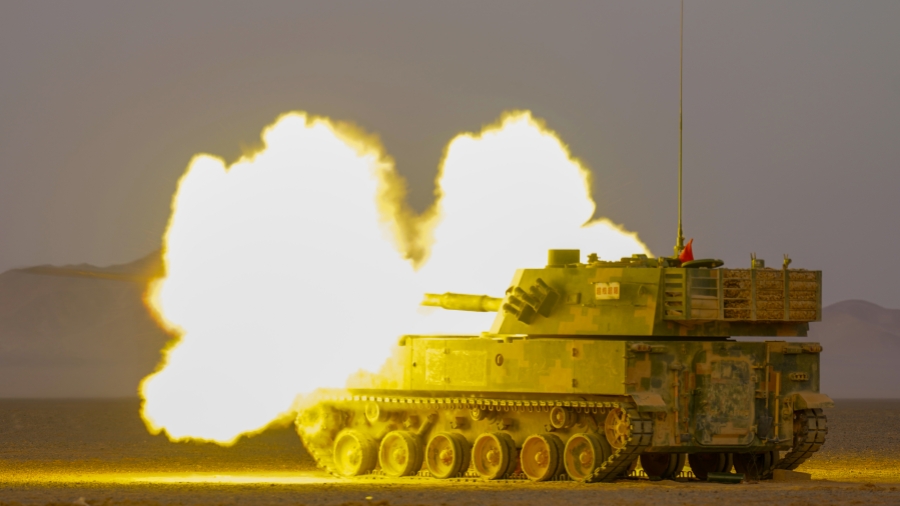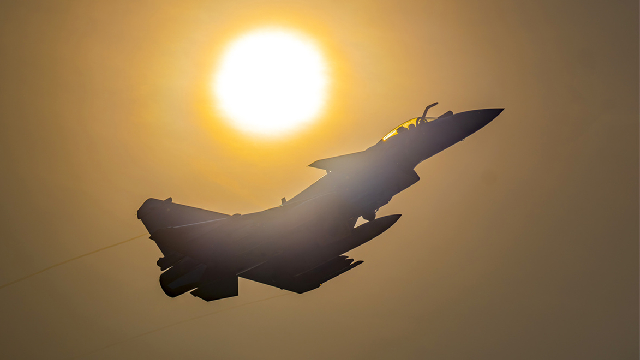By Guan Ruohe and Duan Ting
Recently, NATO's plan to significantly expand its military has once again attracted widespread attention from the international community. According to the German newspaper Welt am Sonntag, NATO plans to expand by adding 49 more combat-ready brigades to the existing 82 and bringing the total number to 131. Meanwhile, based on the newly added combat-ready brigades, it is also planned to increase the number of combat corps from 6 to 15 and the number of division headquarters from 24 to 38. Once the plan is implemented, it will enhance NATO's standing response forces' ability to respond to crises and conduct large-scale operations at the front line. Against the backdrop of the protracted Russia-Ukraine conflict and the ongoing deterioration of the security situation in Europe, NATO's actions to strengthen its military and escalate confrontations will severely impact the already fragile international security landscape.
Following the Madrid Summit in 2022, NATO has accelerated adjustments to its troop structure and force system and continued its large-scale military expansion. At its first step, it significantly increased its forward-deployed forces on the eastern flank, expanding the scale of its rapid reaction forces from 40,000 to 300,000 troops. Subsequently, it established the Allied Reaction Force (ARF) based on the existing rapid reaction forces, increasing the size to over 500,000 troops. The military expansion plan recently disclosed by the media is part of its force system adjustment after the outbreak of the Russia-Ukraine conflict. Although NATO's military expansion has been planned for some time, the timing of this disclosure reflects multiple considerations.
The first is to increase deterrence against Russia. Recently, Russia has made new progress in eastern Ukraine, capturing important places such as Makeyevka. Meanwhile, it announced that the total number of active service members will be expanded to 1.5 million. In this context, NATO hopes to boost Ukraine's morale and support it through a high-profile military expansion. The second is to enhance frontier defense capabilities. Recently, the new NATO Secretary General took office and announced an ongoing increase in military investment and support for Ukraine in its fight against Russia. The timely military expansion of NATO can strengthen the Nordic defense area, which has just been incorporated into NATO's territory, and counteract the persistent skepticism within the alliance regarding the policy of aiding Ukraine against Russia. The third is to demonstrate its own value and role. As the US presidential election enters its final stages, the future of NATO also faces increasing uncertainty. NATO demonstrates its existence and contribution to the security and stability of the Europe-Atlantic region through military expansion, which is conducive to preventing the potential weakening of NATO by conservative political forces in the US and reinforcing support for the transatlantic security ties and alliance policies between the US and Europe.
NATO's military expansion not only has a negative impact on the security situation in Europe but also exacerbates internal divisions within the alliance. On one hand, NATO's military expansion to strengthen confrontation will undoubtedly lead to further deterioration of the security situation in Europe, escalating the already sharp Russia-Europe tensions and increasing the likelihood of direct conflict. It is easy to envision that as both sides compete in military expansion, military confrontations will inevitably extend further from Eastern Europe to Northeastern Europe. The long border between Finland and Russia is likely to become increasingly unsettled, and Europe will be increasingly shrouded in the shadow of war. On the other hand, the spillover effects of NATO's military expansion will exacerbate the global arms race, potentially leading more countries to increase their military investments, which will inevitably undermine national security and international peace.
Moreover, its significant military expansion may also intensify potential conflicts among alliance members. The short-term increase of such a large number of troops by NATO will not only reignite conflicts among member states regarding military spending and burden-sharing but will also lead NATO members to further cut investments in social welfare policies, which would provoke anti-war sentiments among the public and impact domestic stability in various countries.









